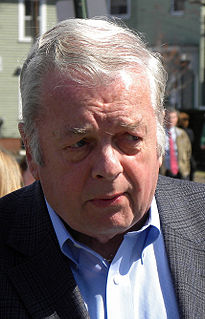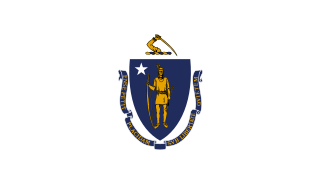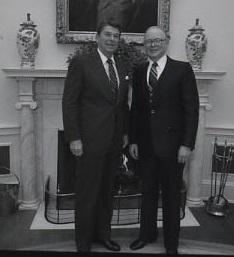It has been requested that the title of this article be changed to List of governors of Maine . Please see the relevant discussion on the discussion page. The page should not be moved unless the discussion is closed; summarizing the consensus achieved in support of the move. |


The Governor of Maine is the head of the executive branch of Maine's state government [1] and the commander-in-chief of its military forces. [2] The governor has a duty to enforce state laws, [3] and the power to either approve or veto bills passed by the Maine Legislature, [4] to convene the legislature at any time, [5] and, except in cases of impeachment, to grant pardons. [6]

The Governor of Maine is the chief executive of the State of Maine. Before Maine was admitted to the Union in 1820, Maine was part of Massachusetts and the Governor of Massachusetts was chief executive.

The Maine Legislature is the state legislature of the U.S. state of Maine. It is a bicameral body composed of the lower house Maine House of Representatives and the upper house Maine Senate. The Legislature convenes at the State House in Augusta, where it has met since 1832.
Contents
- Governors
- Other high offices held
- Living former U.S. governors of Maine
- Notes
- References
- External links
There have been 75 governors of Maine since statehood. 70 people have held the office; 4 of them served multiple non-consecutive terms. [7] The longest-serving governor was Joseph E. Brennan, who served two terms from 1979 to 1987. The shortest-serving governors were Nathaniel M. Haskell and Richard H. Vose, who each served only one day. John W. Dana also served for one day in 1844, after the incumbent governor resigned, but was later elected to the governorship. The current governor is Democrat Janet Mills, who took office on January 2, 2019.

Joseph Edward Brennan is an American Democratic Party lawyer and politician from Maine. He served as the 70th Governor of Maine from 1979 to 1987. He is a former commissioner on the Federal Maritime Commission.
Nathaniel Mervin Haskell was a Maine Republican politician. Haskell served as the 62nd Governor of Maine for 25 hours: from 10:00am on January 6, 1953 to 11:00am on January 7, 1953.
Richard Hampton Vose was an American politician and the 14th Governor of Maine for two days in 1841.








































































